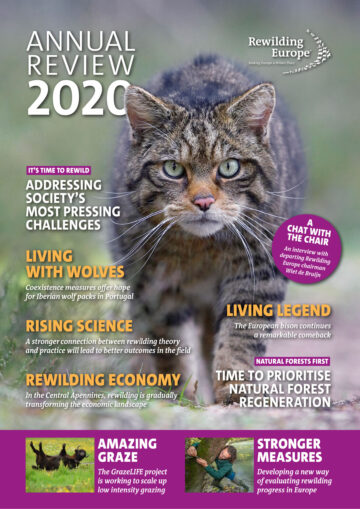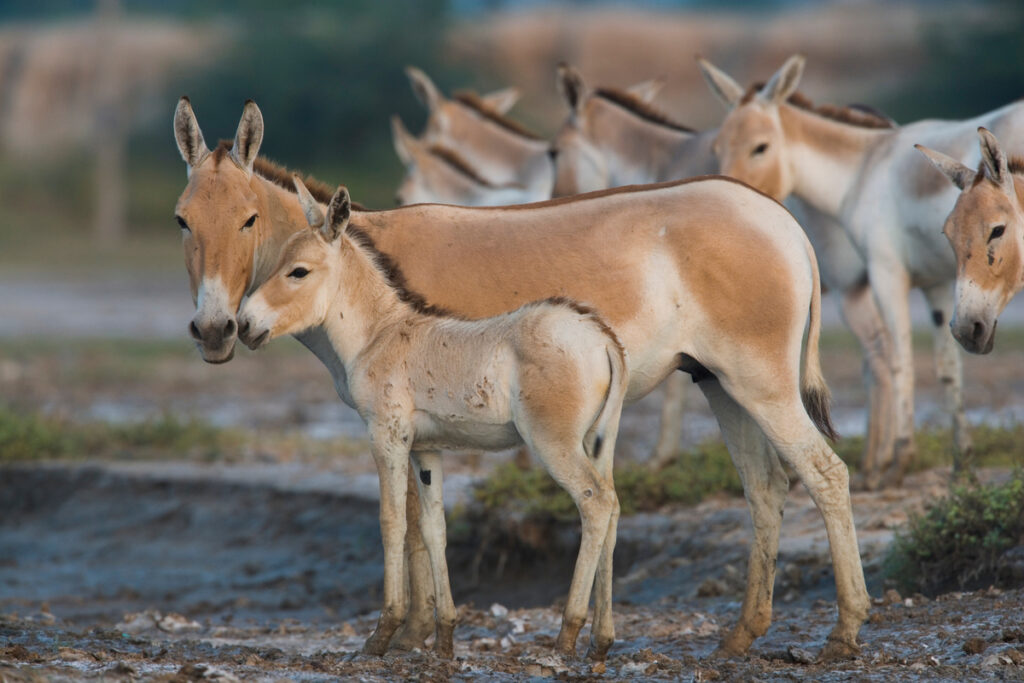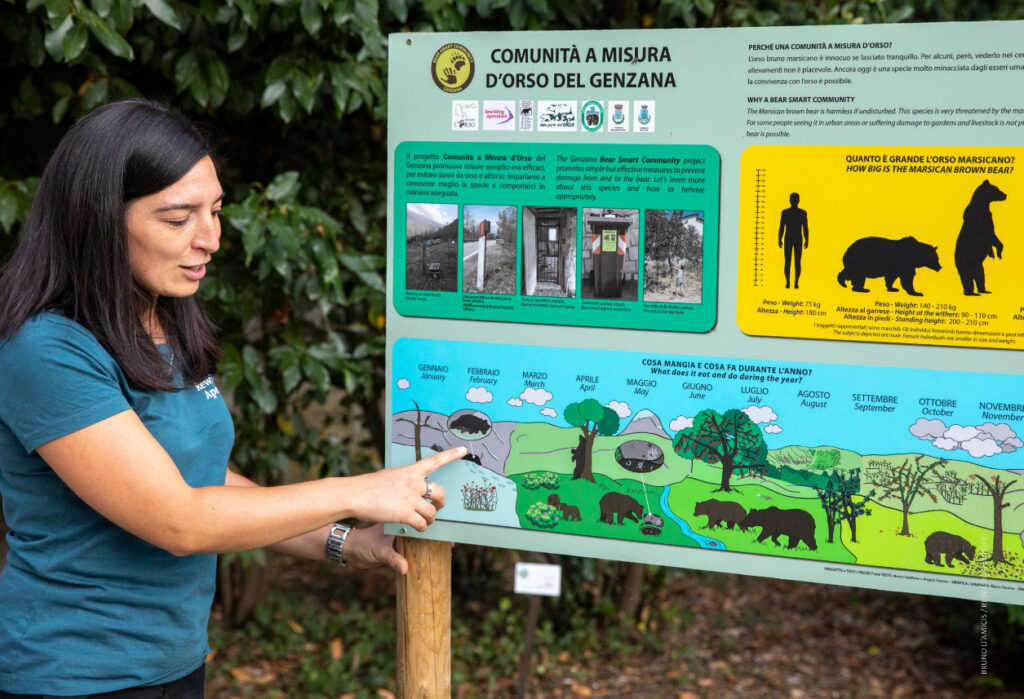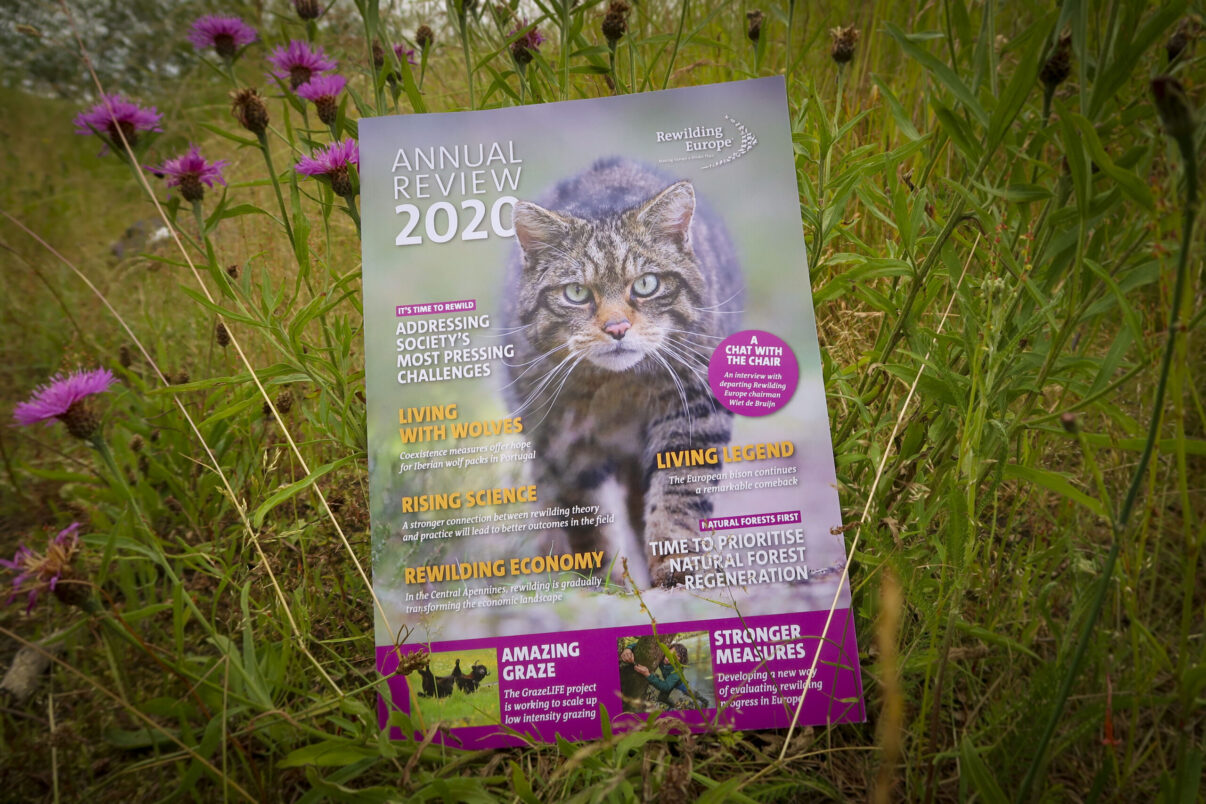With its illustrated blend of results and feature stories, Rewilding Europe’s newly published Annual Review 2020 shows why rewilding at scale is the best way of addressing some of society’s most pressing challenges.
Delivering restoration

Today, at the start of the UN Decade on Ecosystem Restoration, awareness of the need for large-scale nature recovery has never been greater. Rewilding Europe’s latest Annual Review, which has just been published, not only showcases the progress that we made in 2020, but builds a compelling case for the immediate scaling up of rewilding as a means of achieving that recovery.
“As we look towards 2030 and beyond, the only way to ensure a healthy and sustainable future for Europe and the planet is to restore large areas through rewilding, reducing human management and letting nature take care of itself,” says Rewilding Europe’s Managing Director Frans Schepers. “This latest Annual Review, which I warmly invite everyone to read, shows how rewilding can and should be used to help address some of our most pressing challenges, such as climate change, biodiversity decline and global pandemics.”
Rewilding in context
In addition to presenting key results from all eight of Rewilding Europe’s operational areas in 2020, the latest Annual Review also includes a number of extended feature stories. Accompanied by imagery from some of Europe’s top wildlife photographers, these give readers a broader and deeper perspective on rewilding and its evolution, and the wide range of benefits it offers to both people and nature. Story topics include natural forest regeneration, the development of rewilding science, the ongoing comeback of the European bison, and a new way of measuring rewilding progress.
These pieces are complemented by more practically focused articles detailing Rewilding Europe’s efforts to support Iberian wolves in the Greater Côa Valley (Portugal) and to develop a rewilding economy in the Central Apennines (Italy), as well as the findings and recommendations of the GrazeLIFE initiative, which Rewilding Europe has been coordinating since 2019. There is also a colourful interview with Wiet de Bruijn, who stepped down as Rewilding Europe’s chairman in 2021, following a nine-year tenure.

Onwards and upwards
Rewilding Europe’s tenth anniversary celebrations, which will kick off at the end of June 2021, are rapidly approaching. Building on progress made in 2020, this is shaping up to be a year where Rewilding Europe reinforces its role as a pioneer and a leader – both in terms of thinking and practical action – for rewilding in Europe.
“We are now moving into a decade which will see rewilding firmly established as a new conservation narrative, as its practice, impact and benefits are scaled up across Europe,” says Frans Schepers. “As our latest Annual Review shows, the momentum behind rewilding is continually increasing. Based on the hard work, dedication and expertise of our rewilding teams, Rewilding Europe will continue its efforts to accelerate that momentum.”


